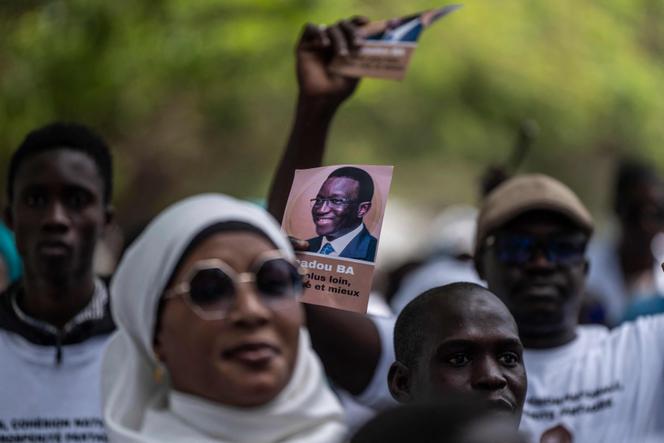


After a final few hours of confusion over the election date, the political horizon suddenly cleared in Senegal on Thursday, March 7. The Constitutional Council, which had proposed the date of March 31 the previous evening, eventually agreed with the decree of President Macky Sall, calling the first round of the presidential election for Sunday, March 24. "Setting the election date and convening the electorate fall within the legal prerogatives of the president of the Republic," said Mamadou Badio Camara, the president of the court which, for the past month since the postponement, on February 3, of the election, initially scheduled for February 25, has consistently rejected the solutions proposed by Sall.
As the decisions of the constitutional judges are not subject to appeal, "we can no longer change this date," stated law professor Babacar Gueye, also a member of the civil society platform Aar Sunu Election (Protect our election). "We're ready. All the electoral material is available, the training courses have almost been completed and the Constitutional Council has clearly stated that we can use the ballot papers printed for February 25," said a source at the general directorate of elections, while Senegal is awaiting a new government and the official campaign opens on Saturday.
Incumbent Prime Minister Amadou Ba has already been replaced by Interior Minister Sidiki Kaba to focus on his strategy. 18 others are running for the first round of the election. They will have just 13 days to try and convince the electorate. The electoral code states that there should be 21 days of campaigning, but "the situation is exceptional, so the Council can adapt and modify the legislation to ensure that the vote can be held. The focus is on saving the presidential election," stressed Professor Gueye.
As far as the candidates are concerned, even though this decision still leaves some dissatisfied, the time has come to prepare their campaigns and arguments. After having tried to appeal to have the election on March 31, so that candidates would have the time they needed to campaign, one of the candidates, Habib Sy, admitted that he has changed his mind "because everyone is anxious to get it done." Déthié Fall, candidate for the Parti Républicain pour le Progrès, explained that after insisting on "a date for the first round before April 2," he has chosen to comply with the decision approved by the constitutional council "in the interests of consistency." "Even if we have to adapt our strategy to suit the Ramadan period," said Anta Babacar Ngom, also running for election. "We have to be republican and sacrifice ourselves to overcome this situation and end the crisis."
But among all the parties in the race, one is in a unique situation. The Parti Africain Sénégalais pour le Travail, l'Ethique et la Fraternité (PASTEF), the government's main opponent, still has its two leading figures in detention, charged with "calling for insurrection" and "undermining state security." Ousmane Sonko, its leader disqualified for the presidential race after being convicted of defamation, has been in prison since late July 2023. His replacement candidate, Bassirou Diomaye Faye, has been in prison since April without trial.
According to their lawyers, both should benefit from the general amnesty law controversially passed on the evening of March 6. This applies to all offenses or crimes committed between February 1, 2021, and February 25, 2024, whether tried or not, "relating to demonstrations or having political motivations."
"It's up to the courts to release Bassirou Diomaye Faye once the law has been promulgated," explained his lawyer, Moussa Sarr, even though the law can only legally come into force six days after it has been passed, leaving time for any appeals. "The prosecutor may also decide to release him before the start of the campaign," hoped a person close to Diomaye Faye. The past month has been full of twists and turns.
Translation of an original article published in French on lemonde.fr; the publisher may only be liable for the French version.
